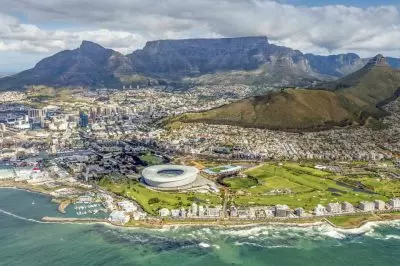 The growth of multiple illegal gambling websites in South Africa is now impacting the tax revenue for the government and the business of licensed casinos in the country. This has urged both politicians and gaming operators to call for legalization of this rapidly evolving, multibillion-rand sector.
The growth of multiple illegal gambling websites in South Africa is now impacting the tax revenue for the government and the business of licensed casinos in the country. This has urged both politicians and gaming operators to call for legalization of this rapidly evolving, multibillion-rand sector.
The National Gambling Board, South Africa’s gambling regulator, has warned of the detrimental effects of the growing illegal gambling operations on the legalized casino and betting sectors in the country. Underground gambling dens and, most of all, gaming websites, which are not currently regulated, are eroding the revenues of land-based operators, the industry watchdog has said. Furthermore, this impacts the tax revenues for the government and, ultimately, leads to loss of job opportunities and local economic activity.
These were some of the conclusions from the National Gambling Board’s two-day conference in Pretoria earlier this month. According to the latest statistics, gambling has brought billions of rands (R) to the national economy. Data from a Price-Waterhouse-Coopers report shows that the industry won nearly R30 billion in gross earnings in the 2017/2018 fiscal year, contributing R2.8 billion to the South African economy. Gambling revenues from legitimate operators are projected to grow to R30 billion in 2019 and close to R35 billion by 2021.
Meanwhile, it is impossible to estimate the earnings from illegal gambling operations but many experts believe that they amount to billions of rands, as well. Until recently, the legalization of online gambling was a rather unpopular idea but more and more politicians and experts now believe this move is necessary for resolving the issue. And one of the best ways to do this is finalizing the Gambling Bill, which would regulate the online gambling sector.
Recently, the official opposition party Democratic Alliance suggested several steps for improving the current economic situation to the Minister of Trade and Industry Ebrahim Patel (formally South Africa’s Minister of Economic Development). It suggested four legislative changes and one of the top priorities was finalizing the Gambling Bill. Different amendments to the current legislation have been proposed and passed but none of them has included comprehensive regulation of the online gambling sector.
Casino Operators Demand Solutions
 There are 40 licensed casinos in South Africa and to be able to operate freely, they have applied for the proper licenses, they pay taxes and comply with all rules and regulations. Under current legislation, various forms of gambling are legal in the country, including lotteries, casinos, betting on sports and horse races, etc. With the exception of the National Lottery, the gambling industry is regulated by the National Gambling Act 2004, while the licensing and regulatory body is the National Gambling Board.
There are 40 licensed casinos in South Africa and to be able to operate freely, they have applied for the proper licenses, they pay taxes and comply with all rules and regulations. Under current legislation, various forms of gambling are legal in the country, including lotteries, casinos, betting on sports and horse races, etc. With the exception of the National Lottery, the gambling industry is regulated by the National Gambling Act 2004, while the licensing and regulatory body is the National Gambling Board.
Online gambling, on the other hand, is illegal with one exception – online bookmakers are allowed as long as they have obtained a license in the country. Customers are not allowed to place bets at international sports betting websites without a local license. Still, foreign bookmakers and online casinos have become extremely popular in recent years.
South Africa’s legitimate casino operators are, of course, concerned with the rise of illegal websites that eat up their revenue. The Casino Association of South Africa (CASA) claims that the lack of regulation is beneficial to illegal operators. Unlike them, CASA says, licensed casinos must pay substantial taxes and comply with very restrictive gambling laws. The 1% gambling levy, which was recently announced by the government, will only increase this tax burden, the association warns.
This uncertainty is “detrimental” to the gambling and betting industries, CASA CEO Themba Ngobese said, pointing out that politicians should either “take decisive action” against underground operations or finally legalize online gambling. Legalization, he says, will bring more tax revenues to government coffers and will introduce consumer protection, which is now being offered only to those who visit land-based casinos.
The Department of Trade and Industry (DTI), however, has taken a different approach – it believes that legalization of online gambling would only exacerbate the problem. Last year, it introduced the National Gambling Amendment Bill, which if passed, would allow authorities to confiscate illegal winnings from gamblers and require banks to block payments to and from online operators.